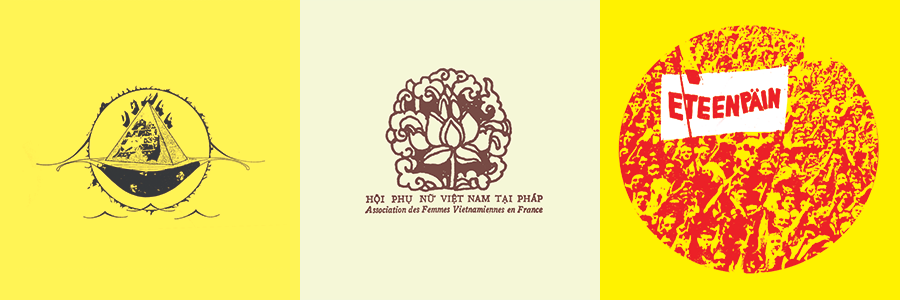
LEFT TO RIGHT: USA, Vietnam, Finland
Politics and music historically go hand-in-fist from left, right, and center, on all sides of the barricades, battlefields, and battlements. Inspiring lyrics and percussive beats have sent political allies and enemies into the maelstrom. What would the 60s have been without the anthems rallying adherents to the civil rights and anti-war causes? Sloganeering can only move people so much; for activism to have muscle a diet of word, picture and sound must create fusion tied together through music. Political music draws on many styles: from Afrobeat, Cumbia, Jive, New Wave, Oi, Polit-Folk, Punk, Progg, Riot grrl, to Soca.
Josh MacPhee, a Brooklyn based artist, designer, archivist, and founding member of Interference Archive, a public collection of ephemera produced by social movements, is deep into the documentation of social and political movements. He is the author of An Encyclopedia of Political Record Labels, the most recent 3rd edition of which is a collection of over 750 record label logos, representing a wide swath of obscure yet active groups, organizations and movements, like Cuba’s Tricontinental, USA’s Tribal War, The Netherlands’ Moker, Italy’s Linea Rossa, Sweden’s Lilla Raven Records, and France’s Imedyazen, among them. MacPhee says his book is not the complete record of these record labels but it is a fascinating look at a vigorous subculture. I recently spoke to him about how political record labels have impacted to the age of turmoil we live in and his role in spreading the word, graphics and sounds.

LEFT TO RIGHT: USA, Lybia, Portugal
Steven Heller: I never imagined that there are this many record labels devoted to political content. You say calling your book An Encyclopedia may be misleading, but what you’ve found is broad (encyclopedic, actually). How do you define “political” music?
Josh MacPhee: I’ve actually side-stepped that particular puzzle somewhat with this project. By focusing on political labels, I’ve honed in on music (and recorded sound more broadly) that was produced out of a left wing political context without having to make too many claims about political content. Many of us have been politicized by quite mainstream music, whether its John Lennon, Bob Marley, or the Clash. I have no interest in claiming those musicians as not political, I’m just less interested in the transmission of politics from on high than from below. I wanted to use a lens that would focus on the vinyl record as a tool of agit prop, and a seemingly effective one given the volume of its use!
SH: Music has long played a role in political struggle. The labels that you describe appear to cover just about every issue or movement. What is the history?
JMP: The terrain evolved over time, but there were a number of peaks in production. Here are some highlights: In the mid- to late-1960, recordings related to the Civil Rights Movement in the U.S. were produced in huge quantities by both grassroots groups and major record labels. In the 1970s, the nueva canción movement swept from Latin America across the world, with literally tens of thousands of different recordings by thousands of artists being pressed. And in the 1980s, as global consciousness around apartheid in South Africa grew, an avalanche of musicians recorded songs about Sharpesville, Soweto, Biko, and Mandela. Weaving in-between these larger movements were focused spikes of production, such as fado and folk music coming out of the Carnation Revolution in Portugal in 1974, or an international outpouring of anti-nuclear records in the late 1970s and into the 1980s.
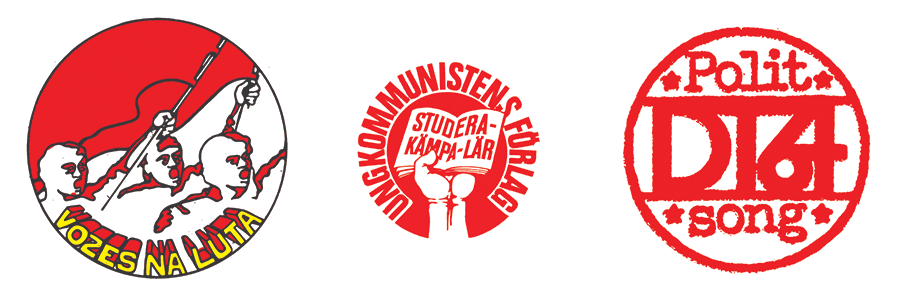
LEFT TO RIGHT: Portugal, Sweden, GDR
SH: I notice (and you say in your intro) that the majority of these labels reference the left. I know there are white supremacist records, did you purposely avoid this onerous group?
JMP: Yes, for this project, for now, I have focused on politics that fall on the left of the ideological spectrum, largely socialist (and social democratic), communist, anarchist, union-focused, and left nationalist. This is where my interest began, and turned out to be such a wide field of material, it was fairly all-consuming as is.
There is a huge world of recorded sound from the far right as well, from actual Nazi recordings to thuggish white supremacist punk, speeches by anti-communist apostles to millenarian Christian apocalypse songs. This is all super fascinating, and well worth study. I have actually been thinking about adding a right-wing section to the book in future editions. But that said, I want to avoid some sort of equivalency. While some of the left material might ultimately have ended up being quite authoritarian, it was produced out of a desire to maximize people’s freedom. This is fundamentally different than movements whose goal is to repress and even eliminate everyone that is not like them.
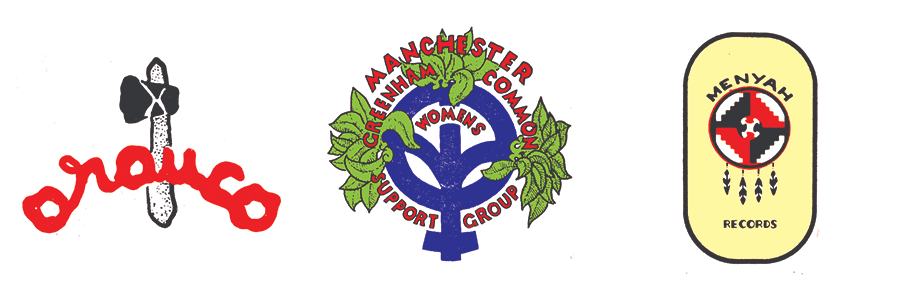
LEFT TO RIGHT: Venezuela, UK, USA
SH:What is the range of musical styles?
JMP: Very wide! If there is a style that existed between 1960 and 1995, there were likely political records of it. Beyond common and popular musical genres such as rock, reggae, jazz, classical, etc., while working on the book I realized I had create basic definitions of all the less common styles that were mentioned, which led to a glossary of 36 musical styles included in the back. This includes chaabi, corridos, highlife, rebetika, soca, and dozens more. Every region that has a traditional musical style used by poor and working people to convey the realities of life from their perspective has a unique political sonic heritage.
SH:How do many of these labels survive? Its hard enough for many mainstream musicians to make a living today from streaming.
JMP: Very few of the labels that I discuss in the book still exist. Hundreds were actually just one-off projects, citizens initiatives that created a record or two as agit prop. Other labels with more traditional structures either didn’t survive the transition to CD, and eventually MP3s, or couldn’t re-orient to 21st century political realities. I don’t think this means we should say they failed, but instead recognize them as products of their time, producing music on vinyl records during the period when vinyl was the dominant form of distribution of music in a physical form (as opposed to radio, etc.), and when the world was existing under a very specific set of political conditions, including the US-Soviet cold war, the throwing off of colonial chains by the global south, and the rise of new left formations, including student activists, guerrilla groups, and independent community organizations.
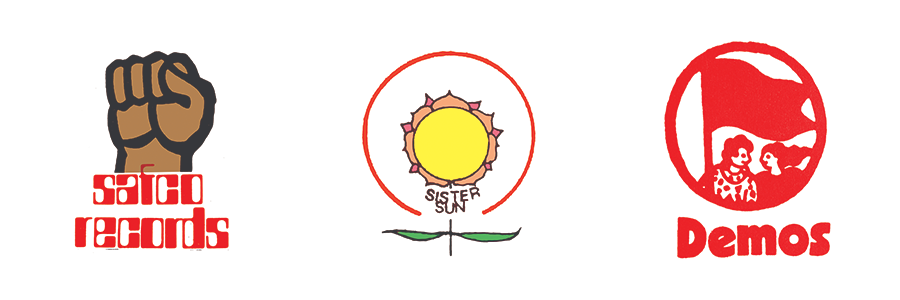
LEFT TO RIGHT: USA, USA, Denmark
SH:It would be of interest to see the record cover graphics associated with these labels. Generally, are they “well” designed?
JMP: It’s not surprisingly a mixed bag. Some are quite inspired, while others are pedestrian at best. Some great designers created political record covers, including Ronald Clyne (most well known for his work with Folkways) and the Chilean brothers Vicente and Antonio Larrea. A lot of krautrock and polit-folk also features very cool proto-punk cover design. One of my upcoming projects is actually to publish a large-scale book featuring this design, not only of the covers, but of all the political ephemera often stuffed into the record sleeves (from posters to petitions). I just need to scare up the funding, so if anyone out there is interested in supporting this project, get in touch!
SH:How are these labels created and are some more sustainable than others?
JMP: It is really a wide field. Many are completely ad-hoc, and only exist for very specific projects—for instance, a label that forms to release a record to raise money for striking workers. There were also a stable of more structured labels that released a broader array of political music and speech, and these tended to have longer lives. Paredon Records in the U.S., founded by folk and Northern soul singer Barbara Dane and Sing-Out! magazine editor Irwin Silber, lasted for about fifteen years and put out 50 records with music from almost as many countries. In Denmark, an anti-Vietnam War political organization converted itself into a record label called Demos in 1970 and ran until 1978, releasing just shy of fifty records. Unlike Paredon, Demos’s focus was on Danish politics—pressing records in support of local strikes, feminist groups, by the first out gay musician in the country, and the first record by a rock band from Greenland.

LEFT TO RIGHT: Angola, West Germany, France
SH:Which of these are the most significant for getting the message out?
JMP: I would suspect in most instances, very focused and specific records about local struggles were the most effective as targeted agit prop. This is specifically true in the cases of labor struggles, community resistance to gentrification and development, and opposition to specific nuclear power plants. On the other hand, much more popular and widely distributed records around international issues by groups such as Greenpeace and Amnesty International likely were better at raising a broader global consciousness around environmentalism and political imprisonment, respectively.
SH:What part of the world, Caribbean, East Asian, etc., is the most prodigious producer of this music?
JMP: Different regions have produced different volumes of political vinyl at different times. But all of this is ultimately rooted in a couple material conditions. First, a country, region, or political ideology had to have access to a record pressing plant. So, for example, while Vietnam, Laos, and Cambodia were all in massive politics upheaval during the period I’m focused on, the political groupings there had little access to pressing plants, as the only vinyl plant in the region was in South Vietnam, out of reach of the communists in the region until after the North Vietnamese won the war. For this reason, much of the music they released was done from abroad. Second, you need to have a base of support where it was common for people to own record players. While French colonialism brought the vinyl record to South East Asia, it was a relatively elite thing. This was much less so in France itself, where Vietnamese revolutionaries organized in student and women’s solidarity groups, and released records in support of the Viet Minh.
So while much Southern Africa and South East Asia were awash with music carrying a revolutionary spirit, these areas had little access to pressing plants and record players, especially compared to North America, Europe, Latin America, and much of West Africa. This has much more to do with the history of colonialism than music.
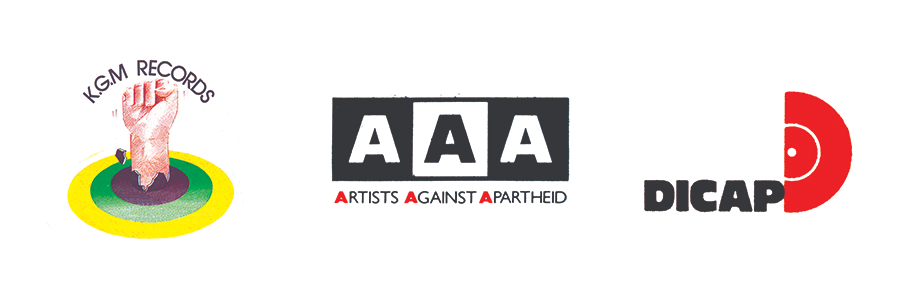
LEFT TO RIGHT: South Africa, UK, Chile/France/Spain
SH:How did you find all these?
JMP: Patience and searching. One of the big obstacles is that until relatively recently it was quite difficult to find a wide array of international music in record stores within the U.S. Historically people from this country have just not been very open to different kinds of music, and then on top of that, much of the political material is fairly marginal, even where it was produced. I found an amazing Italian Wages for Housework LP at a record shop on the Upper West Side, and some great nueva canción in Michigan, but for the most part I had wait until I could travel internationally to find good material at actual record stores.
Ultimately I had go online for both collecting and researching. There are record stores with their own sites, and things like eBay, but the greatest resource is Discogs, an interesting hybrid between online record store and data archive. The site is populated by individual record sellers, but the total sum of information entered becomes something like a wikipedia for recorded music and sound. Thankfully (for my wallet) much of what I was looking for is not very sought after, so I was often able to strike deals with record sellers in other parts of the world, buying large lots of records where each individual piece ends up being quite cheap.
In terms of finding out about records even existing, part of it is just old-fashioned detective work, scouring record sleeves for mention of other albums or musicians, and just following the trail. I also spent a lot of time photographic record sleeves and translating them with an app on my phone.

